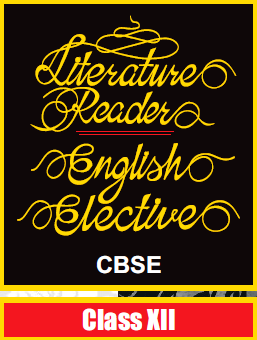Literature Reading English Elective for Class 12, CBSE
INTRODUCTION TO PROSE: NON-FICTION & FICTION
complete Book:-
According to ‘The History of Reading’ by Alberto Manguel ‘… books were a marvelous escape. We can hear our compadres outside, playing baseball and laughing and running. And yet, as we read, at the back of our minds, we’re thinking that they may be out there, having a great and noisy time, but I’m here in my room, by myself, reading, and that’s a much better thing, because someday I’ll start writing books too, and they’ll be sorry that they ignored me, laughed at me, paid no attention to me.’ He also suggests, giving books as meals, food-for-thought, writers cooking up a story, rehashing a text, having half-baked ideas for a plot, spicing up a scene or garnishing the bare-bones of an argument…a slice of life peppered with allusions into which readers can sink their teeth….’ There are several studies that have highlighted the many benefits of reading and reading volume. It should be quite obvious that the more students read, the more they know. Research has even found that reading volume has a direct influence on human cognitive functions. Therefore, reading directly affects a students’ intellectual development. Reading is an active skill which involves inferencing, guessing, predicting etc. It also has, more often than not, a communicative function. We rarely answer questions after reading a text except in a language class, but we do write answers to letters, follow directions, choose restaurants and holidays, solve problems and compare the information to our previous knowledge or the knowledge of others. Literature educates the whole person. By examining values in literary texts, teachers encourage students to develop attitudes towards them. These values and attitudes relate to the world outside the classroom, and therefore, hold a high status in many cultures and countries. For this reason, students can feel a real sense of achievement at understanding a piece of highly respected literature. Texts have been drawn from the students’ areas of interest and which they can relate to intellectually and emotionally at ages 17+ to 18+, such as: friendship, heroism, sacrifice, filial love, loss, freedom, respect, empathy, social responsibility etc. They are authentic , require intensive reading, tend to be highly motivating, provide good vocabulary coverage and additionally, integrate naturally with the development of speaking and writing skills. A familiarity with effective reading strategies can help the teacher look for effective reading behaviours in students and encourage wider use of these strategies. An effective reader is one who can select the correct strategy for the purpose and text.
Studies have shown that the most effective readers:
- discover the distinctive features in letters, words and meaning
- try to identify meaning rather than letters or words
- use their knowledge of the world
- eliminate unlikely alternatives through inference and prediction
- have a clearly defined purpose
- locate topic sentences
- distinguish main points from subordinate ones, and fact from opinion
- are aware of cohesion and reference
- are aware of explicit and implied relationships between sentences and paragraphs
- are aware of the importance of argument, tone and function
- are able to work out the meaning of unfamiliar vocabulary from context
- have confidence in their own ability and take chances
There are many good reasons for using literature in the classroom. Literature is authentic material. It is good to expose learners to this source of unmodified language in the classroom because the skills they acquire in dealing with difficult or unknown language can be used outside the class. Literary texts are often rich in multiple layers of meaning, and can be effectively exploited for discussions and sharing feelings or opinions. Directing learners to examine sophisticated or non- standard examples of language which can occur in literary texts makes them more aware of the norms of language use (Widdowson, 1975 quoted by Lazar 1993).























